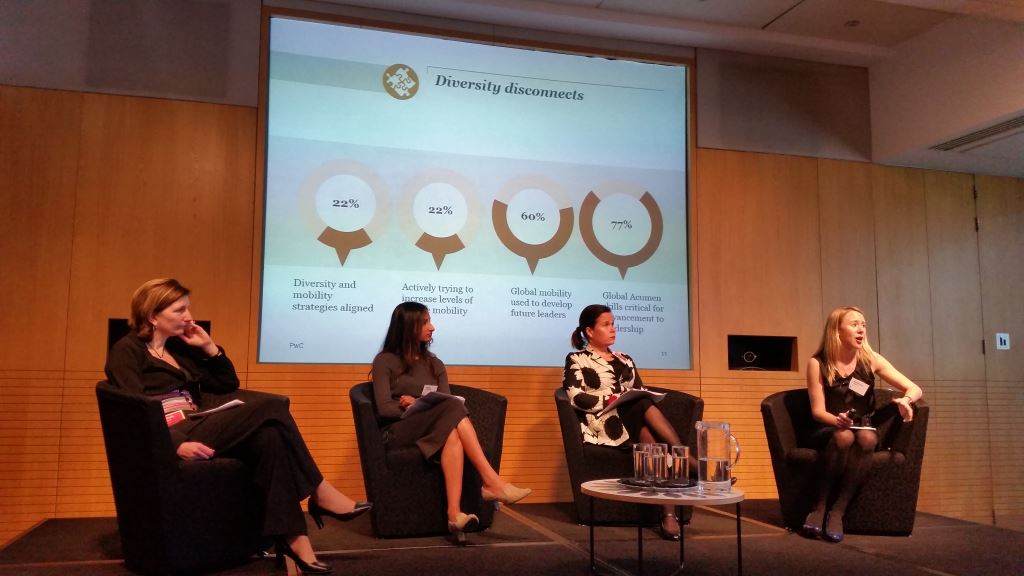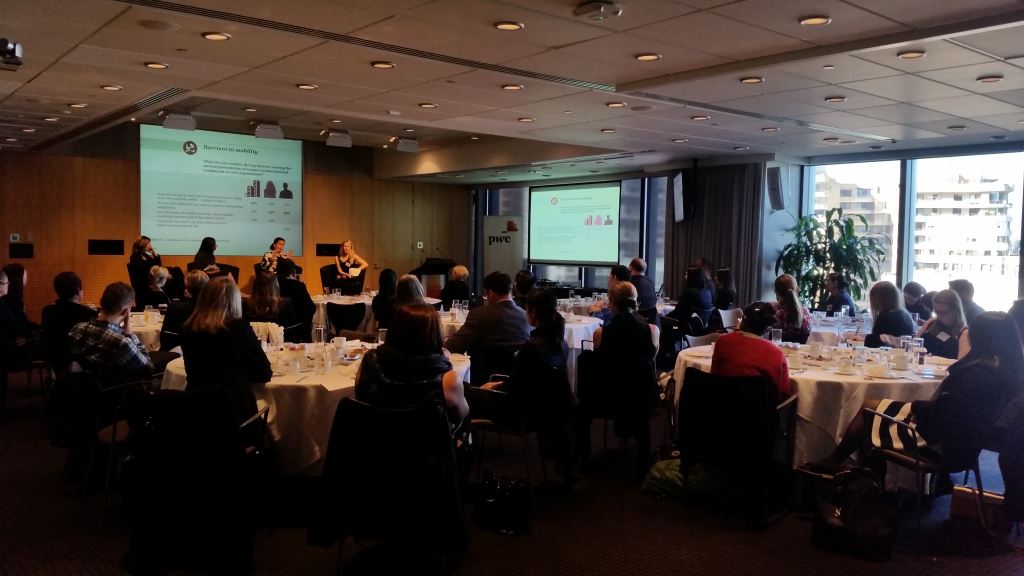Gender Gap in Global Mobility: Moving Women With Purpose

71% of female millennials want to work outside their home country during their career. Yet a recent report from PwC found that women count for only 20% of current international assignees. Organisations around the world are currently challenged with a lack of women in leadership positions and are concerned about the financial and competitive toll this could result in.
Talent diversity is now widely acknowledged as both a business challenge and an opportunity but in reality there are still a number of barriers and disconnects between an employee's expectations and what is actually happening in practice. What are these barriers and how can organisations practically change this? Do you feel women and men have equal opportunity to undertake international assignments at your current employer?

In this session, our host PwC presented the key findings from PwC's latest research and then engaged our panel of women representing different cultural backgrounds and ages, having lived in multiple locations, to expand on the findings of this report as it related to their personal circumstances and their roles. The discussion continued well past our usual end time.
Barriers to Mobility included:
- Organisations not having a clear view of employees who are willing to be internationally mobile (more in depth discussion is needed within organisations about readiness to be mobile on a regular basis)
- The perception that women with children do not want to undertake international assignments (not entirely true - 41% of women with children are prepared to relocate).
- Lack of female role models for whom a global mobility experience has been part of their career success.
- Women do not want to put their partner’s work higher income at risk (again not entirely true – study revealed that 80% of respondents are on a similar or greater salary to their spouses).

Katriina Tahka mentioned that while there is lots of discussion on diversity not much real progress has been made. This is backed up by the background research for the PwC report, which stated that while it is very important to have had an international assignment during your career in order to be considered for leadership roles, the reality was that men were 4 times more likely to be offered an international posting than an equally qualified woman in the same organisation. Without changing this bias things are not going to improve too quickly.
Women (and men) would prefer more opportunities for international assignments early in their careers. The general sentiment was, this would actually encourage them to take more assignments at other stages of their careers too. Also, if the option to personally select from a menu of global mobility assignment package benefits was available, it would make international moves more appealing for more employees. Clearly defining the goals of the assignment and what to expect when the assignment is over.
The need for sponsors and mentors in terms of mobility experience. Increasingly the need to "own your career". All our speakers related to these key concepts and shared their personal experiences across Asia and Europe.
Talent acquisition strategies to develop a diverse pool of candidates requires that you embed mobility into the career path of your talent. Talent and Mobility teams working closer together. Do create a culture of mobility and diversity but "inclusiveness" is more important. How can we be more inclusive without making assumptions.
Want to know more about the Sydney Chapter Meeting or receive updates on future events? Please email Aysegul Kayahan





Please sign in or register for FREE
Sign in OR sign up to become a registered The Forum for Expatriate Management website user
Subscribe here